A Portrait of William: The People's [Future] King
As Prince William celebrates his 41st birthday, his first as THE heir and "Prince of Wales," join me as we take a look at his journey up until this crucial point in his life.
His Majesty King Charles III has been described as a “transitional King.” It may sound brutal, but it is in all sense true. Stepping into the role you have been preparing yourself for at the age of nearly 74 following an incredible seven-decade reign by one of, if not the most beloved monarch in modern times, is no easy feat. It obviously doesn’t help that King Charles has been unpopular for quite some time now, although, thankfully, the tide has slowly, but surely, started to shift in his favor.
His eldest son, however, has enjoyed a popularity streak that others can only envy. Ever since the 90s and even today, people in the U.K. have said that they would have preferred Prince William to have been their next King. To most, he is the dutiful heir with the best qualities of, sure, his mother and father, but also his grandmother, Queen Elizabeth II. It is no secret that Her Late Majesty was whom he looked up to and respected the most.
There is a story, one of triumph, of how the next King of the United Kingdom went from “Bashful Wills” to “the People’s King.”
The Making of Prince
To evaluate the evolution of The Prince of Wales, one must begin by looking at the complexities of the two people who “raised” him. All the information below about Prince William’s parents came from their individual authorized biographies, “Prince of Wales: A Biography” by Jonathan Dimbleby and “Diana: Her True Story” by Andrew Morton, which they both contributed to.
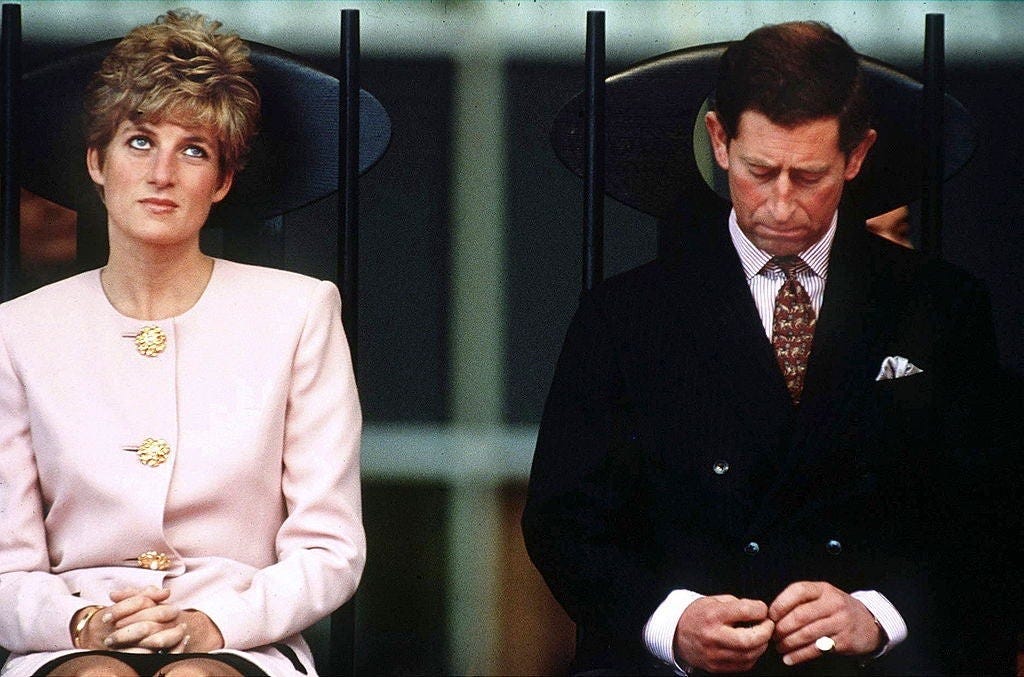
Charles Philip Arthur George was born “Prince Charles of Edinburgh” on November 14th, 1948, to The Duke and Duchess (Princess Elizabeth) of Edinburgh at Buckingham Palace. At the time of his birth, his maternal grandfather was King of the United Kingdom and the “Dominions” of the British Commonwealth. As soon as he was born, little Prince Charles was put into the care of two nurses who were “supported by a staff of maids and footmen.”
A strict day-to-day schedule plagued his early childhood:
The young prince’s curtains were opened at 7:00 a.m. each morning. He was then washed, dressed, and fed breakfast by one of his two nannies, Helen Lightbody or Mabel Anderson.
At 9:00 a.m., he was taken to his mother for a 30-minute “session” before returning to his nursery to play with his nannies until 10:30 a.m., where he would then go for a walk.
Only after 4:00 p.m. would he see his mother again, but she would
Queen Elizabeth II took on the top job when Prince Charles was just three years old. So, one does not need to imagine how much fewer of those “sessions” took place. He was not necessarily starved of affection, which he got lots of from his darling grandmother, The Queen Mother. However, the truth is it was inevitably the nursery staff who “taught him to play, witnessed his first steps, punished and rewarded him, and helped him put his first thoughts into words.”
Growing up, Prince Charles would go months at a time without seeing his parents, who were described as “detached” (The Queen) and “harsh” (Prince Philip). The latter relationship was one that was said to have struggled during those formative years. Prince Charles’ personality was described as sensitive, which was not handled well by his father and his forceful personality. Dimbleby claims that Prince Philip fired Nanny Lightbody because she favored Charles over Anne and indulged in the former’s “softness.”
At the age of 13, Prince Charles began attending Gordonstoun in Scotland. His disdain for his father’s former school, which he described at the time as a “prison sentence,” has been very well documented.
Thirteen years after Prince Charles was born, Diana Frances Spencer was born at Park House in Norfolk on July 1st, 1961. Born as the daughter of Viscount (later Earl Spencer in 1975) and Viscountess Althorp and growing up on the Sandringham Estate, Diana, whose earliest playmates were Prince Andrew and Prince Edward, and her family were always connected to the royals.
Having grown up close to her younger brother since her two older sisters were away at school, Diana was a child of a terrible divorce and a deeply broken home. She describes to Andrew Morton instances of seeing her father hit her mother and seeing her mother cry an awful amount. The biggest disruption in her life was when her mother left the family. Diana recalls the standard procedure of her mother crying on Saturday evening after a weekend with her children and responding, “I don’t want you to leave tomorrow,” when they inquired why she was so upset.
Unhappy and unstable were the two words that frequently popped up as Diana described her childhood to Morton. Her parents were “sorting themselves out” while she was experiencing the pain of a bitter separation plagued by people taking sides and not speaking to each other. She speaks of the fear of showing either of her parents favoritism and the trauma of going from one house to another. Additionally, like Prince Charles, Diana was also raised by a multitude of nannies. Unlike Charles, Diana’s nannies were constantly leaving and changing, which added to the unstableness in her life.
I always say that, besides Diana being far too young for Charles and the fact that they got married so quickly while barely knowing each other, one of the biggest issues of their relationship was that they were two troubled people who never sought to “face their demons” before they got married or tried to better themselves afterward. Their burdens not only carried over into their marriage but into their family life as well.
From the very beginning of their marriage, trouble was there. Diana was always questioning if he had begun an affair with Camilla (even though it would not be until years after Charles and Diana’s wedding that he and Camilla would rekindle their relationship). On the other hand, Charles had no idea how to help his wife, who was suffering from depression and bulimia, among other things. Additionally, Diana seemed wholly unprepared for royal life as she blamed the fact that she was not given time to adapt, one of the prevalent reasons their marriage failed. Charles’ lack of attentiveness and willingness to guide his new wife would prove to be detrimental.
Accompanying the current Prince and Princess of Wales and their work should mean that most of us have been exposed to data and statistics showing how crucial the first five years of a child’s life are to ensure they can grow into stable and healthy adults. So, how did Prince William turn out to be so well-rounded?
When his mother threw herself down the stairs while pregnant with him to get her husband’s attention, now looking back, anyone could tell that little William would have a rough childhood emotionally, mentally, and personally speaking. Diana called William’s conception a “godsend” and asserted that her and Charles’ marriage went down the drain following the birth of their second child in 1984. That means that he had less than two years of any semblance of a “normal” family, and there is little to no way he remembers any of that. A broken family is all he knew during his early life.
Years before any official separation was announced, William had already become accustomed to splitting time between his parents. Charles was a far more involved parent than both of his were when it came to raising him, as he “wanted to try and have a home life of some sort.” Although he initially loved the nursery life and would rush home to feed his babies, Diana stated that having a home life was just not something he knew how to do. Moreover, he was wholly unwilling to change his schedule to accommodate time for his sons (Diana’s induction to give birth to William was famously scheduled to fit into Charles’ polo season), which unsurprisingly caused a strain in their relationship as the boys grew up.
On her part, Diana was an overtly affectionate mother who showered her kids with love and spoiled them rotten. However, her own issues led her to become overbearing and recreate some aspects of her childhood that she hated in that of her sons’ in multiple ways. For example, her sons spent considerable time with their nannies, and in 1986, Diana let go of Nanny Barbara Barnes, whom four-year-old William was particularly close to, as the boys became too attached to her. She was not allowed to say goodbye or even send letters to the kids she taught how to walk and talk and comforted during their turbulent childhood. A peculiar move from someone who recounted the instability that a rotation of nannies caused to her own upbringing.
When Charles and Diana were under the same roof, fighting and arguing ensued. Witnessing such highly intense situations at such a young age can affect a child in many ways, such as their behavior. As a little boy, the tabloids gave William the nickname “Basher Wills” as stories about his troublesome behavior at school and home were published.
If the stories of Queen Elizabeth II declaring her young grandson “out of control” and those detailing his comments about punishing people when he becomes King are, in fact, true, one must wonder why the papers did not ask, “why?” What was the cause of his boisterous behavior? The answer can be found in the countless studies demonstrating that hostile parental conflict, which William was undoubtedly exposed to, can directly cause a child’s poor conduct.
Once William passed that earlier stage, his response to everything he was witnessing and experiencing was to quickly grow into a mature and pensive child. One of Diana’s friends described William to Andrew Morton as “a boy much older and more sensitive than his years.” I’m sure we’ve all read the stories about William comforting his mother by pushing tissues under the door when he noticed her crying and how she would call him “the man in my life” and “my little wise old man.” She relied upon and confided in him to give her advice on all situations ranging from her relationships to her charity work.
At first glance, one might find all of that sweet. However, the more you dwell on it, the more it should become apparent how wrong it was for William to be placed in that position. Diana should have been the one wiping his tears and giving him advice, not the other way around. I recently discovered a term attributed to William in other articles, which puts a lot about William into perspective. Whether she knew it or not, Diana parentified William.
According to Psychology Today, Parentification “comprises a series of role reversals, where a child is placed in the role of needing to care for a parent.” Parentified children tend to experience various difficulties in adulthood, including “difficulties with relationships, poor boundaries, anxiety.”
So, what did William do once he came into his own after a difficult childhood which also included tragically losing his mother and being forced by the public to display his grief? He set out determined to make his own way and, by his own admission, learn from past mistakes.
Born as the heir’s heir, Prince William’s life has been mapped out for him to a certain extent. I can’t imagine how frustrating it was constantly being told what he could or couldn’t do. So, step one of his mission was claiming his future. His decision to attend the University of St. Andrews shocked many people. Most expected him to follow his father’s footsteps and head to the University of Cambridge. Instead, he was set on enjoying his Uni years with privacy, and he would find exactly that in Scotland. Plus, the future King living in Scotland for an extended period did diplomatic wonders.
Post-graduation in 2005, Prince William began his training as the future Head of the Armed Forces. He joined the Royal Military Academy Sandhurst as an Officer Cadet in early 2006 and trained with them for 44 weeks. After completing his training, William joined the Household Cavalry (Blues and Royals) as a Second Lieutenant. Prince William was barred from fighting on the front lines as he wished, since he was second-in-line to the throne.
Despite that, William would still push to see some action. After his time with the Blues and Royals, he would go on to serve with the Royal Navy and Royal Air Force. He received his RAF Wings in 2008 from his father and served on the HMS Iron Duke with the Navy that same year. During this time, he realized how much he loved flying, so in 2009, he began training as a helicopter pilot with the RAF’s Search and Rescue Force. From January 2010 to September 2013, he served as a pilot and conducted over 150 rescue missions.
Nevertheless, the end of his time with the RAF did not signal the end of his flying career. Following a “transitional” year, which saw The Prince take a 10-week agricultural management course at the University of Cambridge to prepare him for the day he would inherit The Duchy of Cornwall, William started working as an air ambulance pilot in July 2015 at the East Anglian Air Ambulance.
William taking up a job caused a lot of grumbling among both the press and within the palace. Some courtiers thought it wasn’t wise for their Future King to be seen doing a “civilian” job. Meanwhile, the press hated that as William was off working, that meant less of him and Catherine undertaking royal engagements, and they were also not getting any access to Prince George and Princess Charlotte. Hence, the media began using the “Workshy Wills” moniker. This obviously upset William. A friend of his told Roya Nikkah in her piece about William for The Times:
“That pissed him off. He was leaving home at 5:30 a.m., getting home after dark, and saving lives in between, but people were still being critical of his commitment to his [other] job.”
To lessen the criticism, William could’ve done what his parents did with him and his brother many times throughout their life. It was no secret that Charles and, primarily, Diana would tip the paparazzi off whenever they were with the boys to have their photo taken in order to gain the upper hand in their battle against each other that was playing out for the world to see. Being deemed a better parent than Charles pleased Diana. Charles, however, is not innocent of using William either. The story of how William’s first meeting with Camilla went, along with other stories, such as him apparently inviting her to join the family on their vacation, were leaked to the press and public to help with Camilla’s image.
Returning to learning from past mistakes, Prince William refused to do the same with his children. It would have been so easy to give in to the press’s demands for a few more photos of the kids and Catherine in exchange for ultimately better coverage, but he didn’t do that, nor do I doubt that he ever will.
Learning to have a healthy, happy, and functional family and relationship must have been like working from the ground up for William. He had no immediate role models for either of those things. His parents were the face of dysfunctionality. Sure, you can say, “He had The Queen and Prince Philip!” but although their story is a sweet one of love and duty, I don’t think that would be something he would go to them for, nor something they could help him with.
I avidly believe that one of the things that naturally happens when you are learning is making mistakes. That is why I can’t take people seriously when they start making silly narratives about William and Catherine’s relationship during their dating years. I already touched on this back in February while debunking many things people get wrong about their story, but is it really a surprise that William, who witnessed all that he did and was “parentified,” which one of the consequences manifests itself in difficulty with relationships, floundered a bit?
Maybe it is just the way my brain is wired, but it has always been evident to me that the reasons for their two very brief splits during their seven years of dating had far more to do with issues resulting from his upbringing than his being undecided about Kate herself or whatever people love to say. She was his very first serious girlfriend, whom he dated for more than a few weeks, and so he was learning about commitment, dedication, and all that entails a relationship with Catherine. And he did very much learn from his mistakes. Following their 2007 breakup, William was, according to an acquaintance, “more devoted and loving.” They added: “In fact, whenever I see them at parties together, he is almost sickeningly into her.”
So, while Charles and Diana got married mere months after they began “dating,” and Diana was not given enough time to acclimate to her changing reality, William did the opposite. He really got to know Catherine during their various years together. He did not give in to the snobbery in the palace and his social circles, who openly talked about how she was not fit enough for the royal family (funny since now she and William together are the Royal Family’s greatest assets).
Ultimately, he also gave Catherine, and her family, time to get a peek behind the curtains and let her decide if that was something she was willing to become a part of for him. There is something so heartbreakingly beautiful about William’s admission in their engagement interview that one of the reasons he took his time to propose was to “give her a chance to see in and to back out if she needed to before it all got too much […] (he) wanted to give her the best chance to settle in and to see what happens on the other side.”
It takes a real man, a real partner, who had clearly learned from the past, to say he was willing to let someone he loved and wanted to be with go if that was what they wanted.
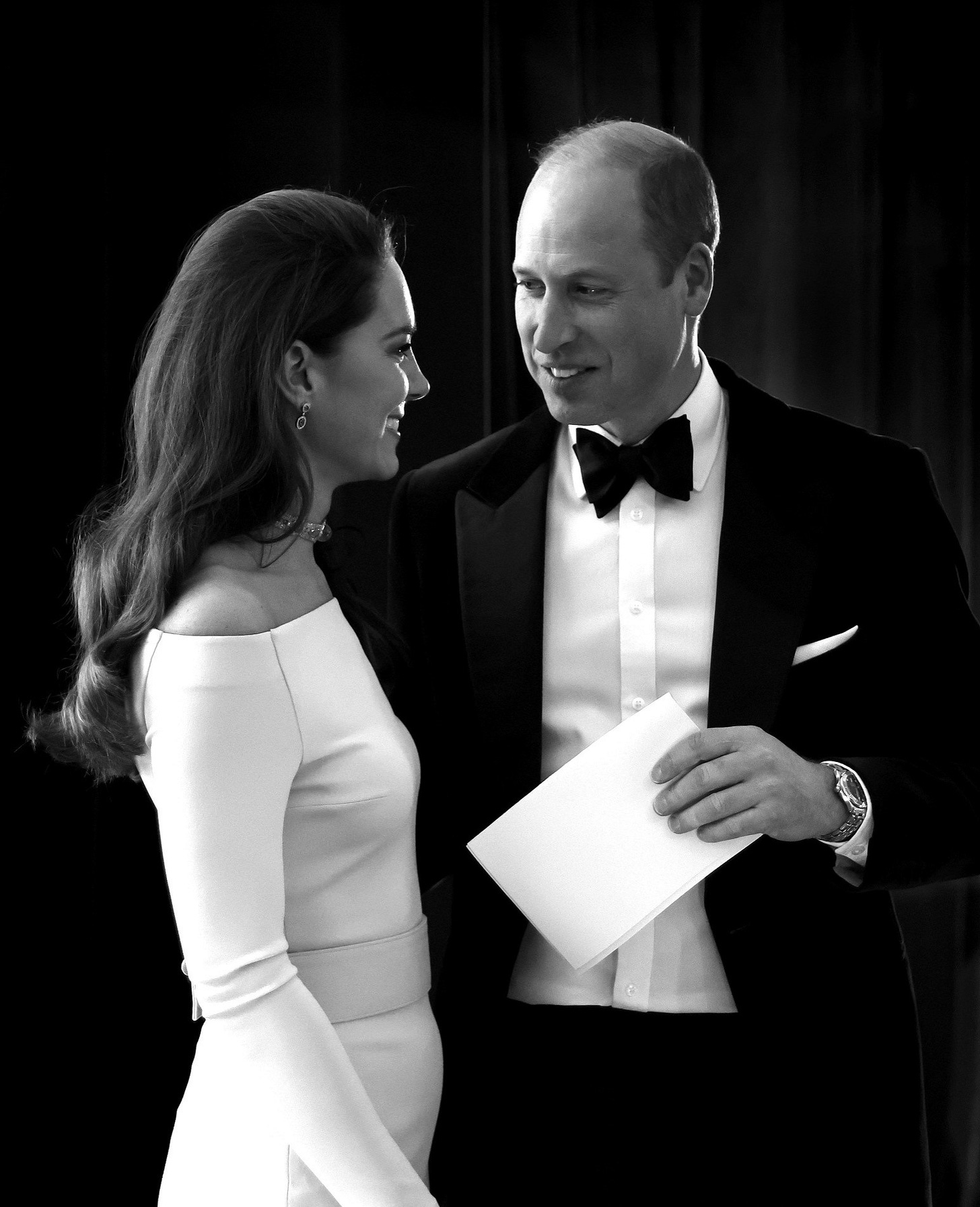
After getting married, it was time for William to start a family. It became evident very quickly that his children would have a childhood far different from his own. Of course, this was likely the result of William recognizing what he did not want to replicate but marrying someone like Catherine, who enjoyed a normal home life and was raised solely by her parents, undoubtedly helped when it came to giving their kids a stable home.
He got rid of those awkwardly staged photocalls he was subjected to growing up and replaced those with sweetly personal photos taken by Catherine released by their own hand. All of their schedules and decisions revolve around their children. The decision to base themselves in Norfolk during George and Charlotte’s earliest years and now up and moving to Windsor so the kids could go to school with more privacy is all in their benefit.
The couple do the school run basically every day, which is something William’s parents, even his mother, despite appearances, did not do all too often. Additionally, William and Catherine (controversially?) schedule their engagements around their kids’ school break so they can spend as much time with them as possible.
I always recall this quote from his 2017 GQ cover interview:
“I couldn't do my job without the stability of the family. Stability at home is so important to me. I want to bring up my children in a happy, stable, secure world, and that is so important to both of us as parents.”
Furthermore, this effort is clearly paying off! One look at the family’s most recent appearance together on the balcony of Trooping the Colour this past Saturday shows how close they all are. Princess Charlotte sweetly grabbing her father’s hand, pulling him closer to her, and the way Prince George and Prince Louis discussed the flypast with their father gave us a glimpse into their home life. It seems to be everything William did not have growing up…
Lastly, in an interview to mark Queen Elizabeth II’s 90th birthday in 2016, William said the following in response to criticism calling him a “reluctant royal”:
“I think royal duty is extremely important. It’s part of the fabric of what the royal family and any future monarch has . . . I take my responsibilities very seriously. But it’s about finding your own way at the right time and if you’re not careful duty can sort of weigh you down an awful lot at a very early age, and I think you’ve got to develop into the duty role.”
He was, of course, very right. Prince William will be doing this “royal” thing for the rest of his life. While other members of the Royal Family may have the liberty to retire from public life at some point, he will not. He recognized this and decided to spend his early 30s focused on serving in another way, as an air ambulance pilot and raising his young family.
William added in that same interview, “When the Queen decides she’s going to hand down more responsibilities, I’ll be the first person to accept them.” This is exactly what he did in 2017 when his grandfather, Prince Philip, retired from royal duties. However, even before his full focus was on royal engagements and prior to becoming a full-time working royal, he was already making his mark on the world.
In 2014, Prince William and The Royal Foundation founded United for Wildlife, which “fosters global collaboration in the private sector to stop the trafficking of wildlife products.” Through two task forces, a Financial Taskforce and a Transport Taskforce, the organization “brings together some of the world’s largest businesses in the transport and financial sectors to break the chains of the illegal wildlife trade.
A few years later, after also participating in and co-founding the successful “Heads Together “campaign, Prince William announced the plans for his new ambitious initiative, the Earthshot Prize, in 2020. A year later, the first of the ten planned awards ceremonies took place in London. Not only do each of the five ceremony winners receive £1 million to turn their ideas into reality, but they also receive exposure and remain in contact with the Earthshot Prize team, who help the winners make other connections. This is a really nice interview detailing the Earshot Prize’s impact on one of last year’s winners.

What’s next for The Prince of Wales as he heads into his 41st year? We are awaiting the announcement regarding the homelessness project William has been working on for a while now. Having visited homeless shelters as a child, this has long been an area William has wanted to make a lasting impact. In an interview published over the weekend with The Times, his only newspaper interview ever, we learned that we will find out details about the “really big project” later this month.
He said that the incoming announcement is “nerve-racking” but then added, “I’m really excited […] I’ve been waiting for the right time to do this.” William’s passion for helping the homeless and tackling the issue of homelessness is not fake. Mick Clarke, chief executive of The Passage, which William is patron of, said:
"William does an awful lot where there aren’t cameras. That’s what he enjoys the most, because he’s meeting real people, hearing real stories, it’s what has formulated his plans. When he comes here, nothing’s sugar-coated, nothing is sanitised. People on the streets are very good about knowing whether someone is authentic or not within a second. He is very authentic.”
Additionally, Mick added that William made several visits to the Passage charity, masked up, during the pandemic, where he prepared food with the volunteers, washed up, and even delivered food to someone in need staying at a hotel.
During the interview, Prince William conceded that there are plans to utilize the Duchy of Cornwall now that it is under his possession, saying, “There is. Absolutely. Social housing. You’ll see that when it’s ready. I’m no policy expert, but I push it where I can.” However, according to William, the project coming later this month will have a “tangible impact” and provide “living conditions up and down the country that improve people’s lives who need that first rung of the ladder.”
Further proving that he isn’t doing all of this for the show, Prince William added:
“I try and do these things subtly, when there’s no media and no one else knows about it […] It’s very hard to make it not about me — [that’s] what I don’t want to do. That was about promoting homelessness. If you’re doing to go and do genuine gestures, you do them privately, you don’t do them with an audience.”
Can’t wait to hear much more about this, probably in the next week or so! Happy Birthday, William … we are so glad you are the next King and proud of how you dealt with all the challenges your early life presented you to now be this incredibly dedicated family man.




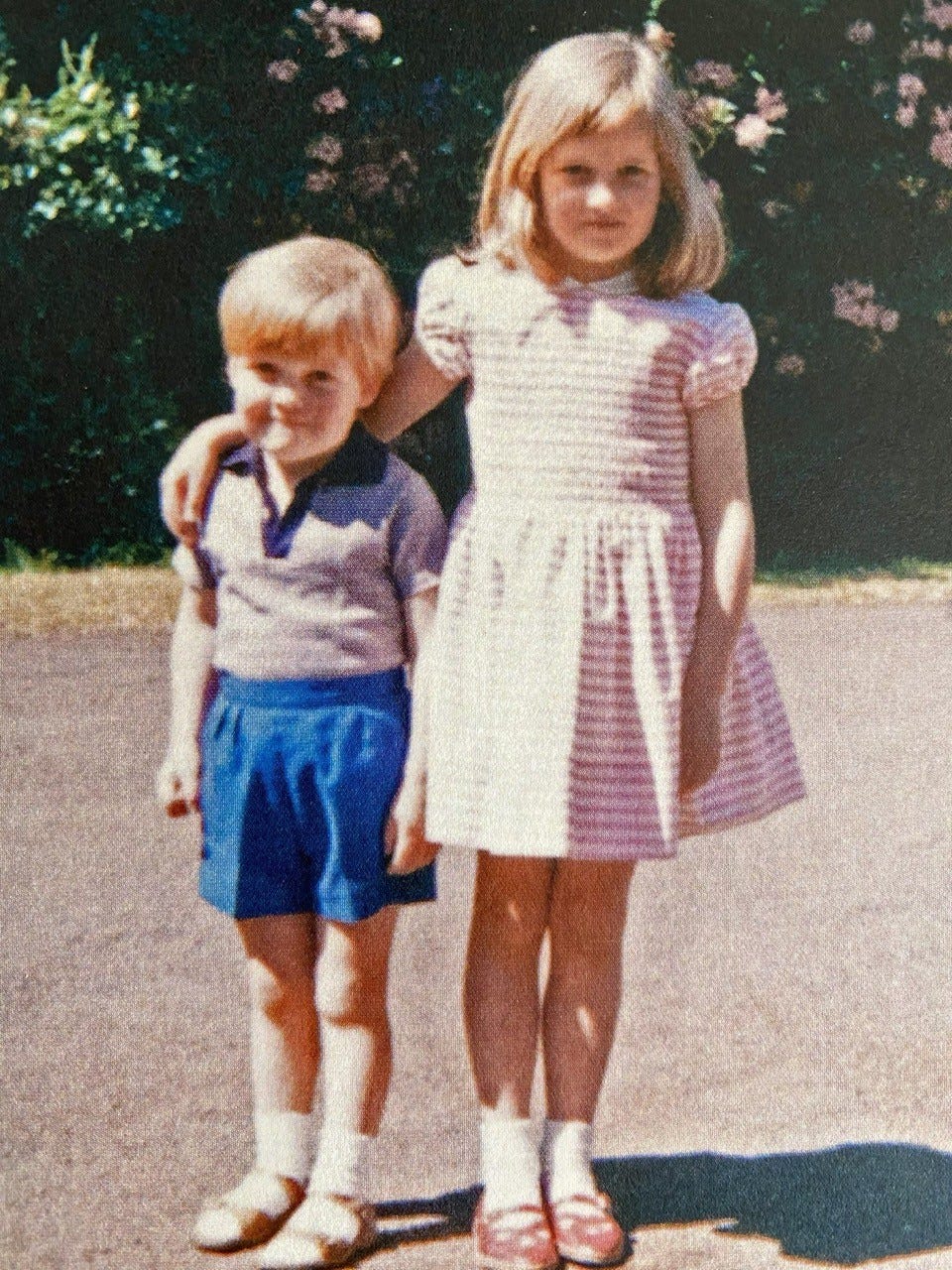
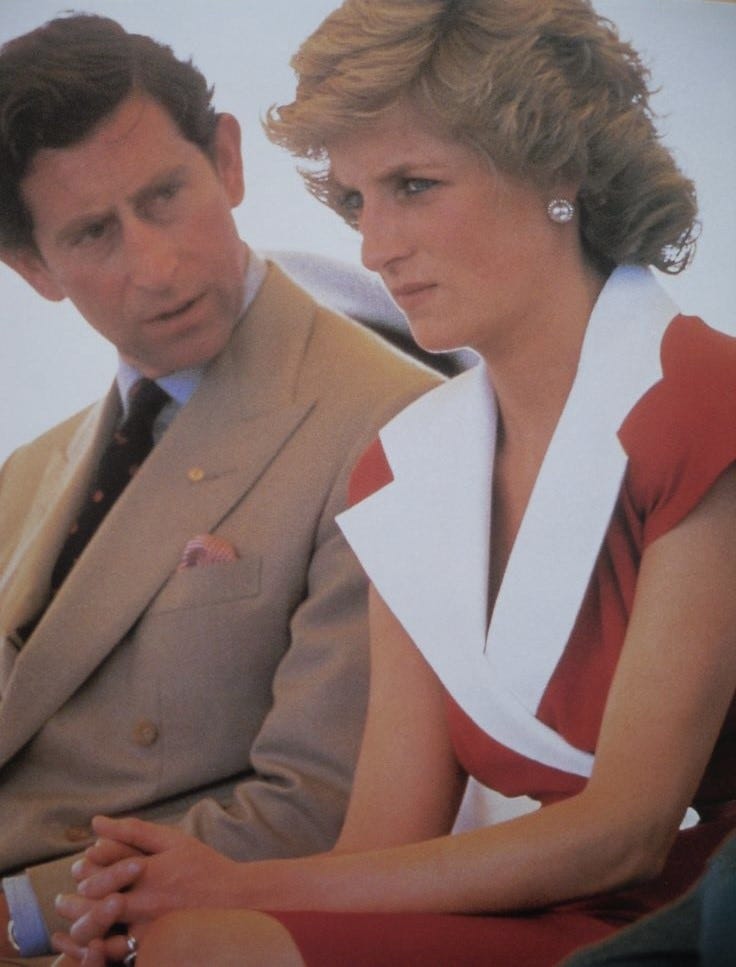



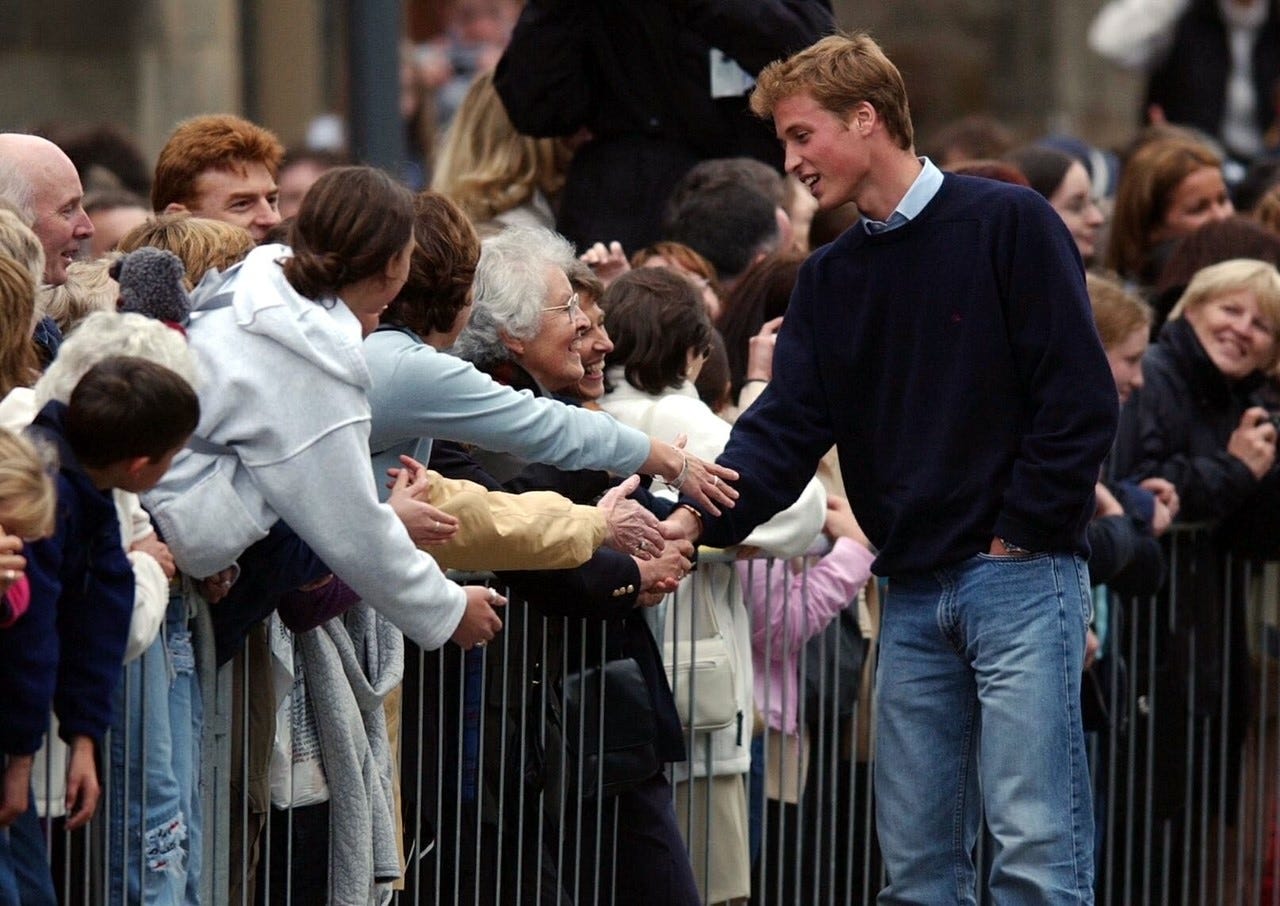

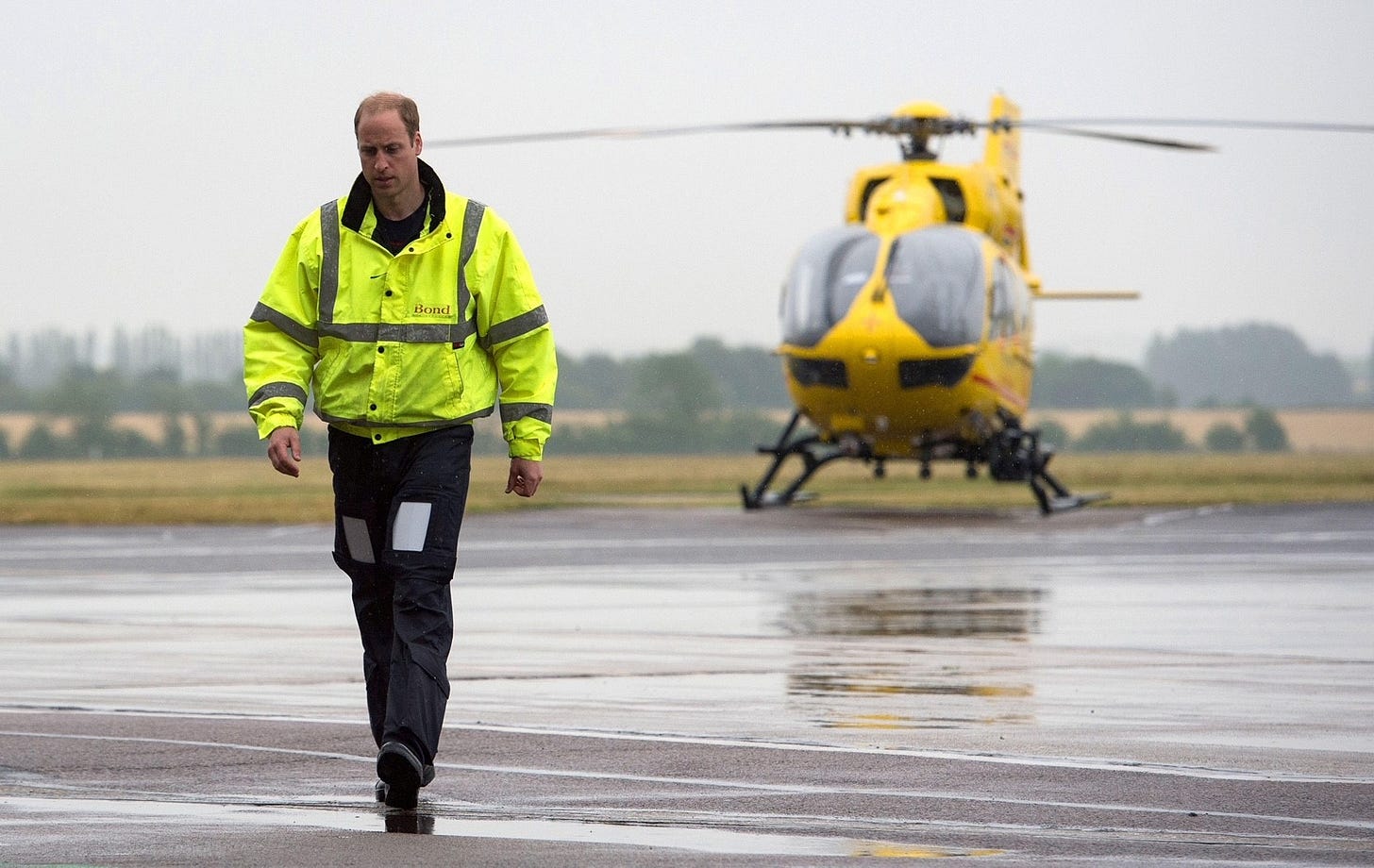
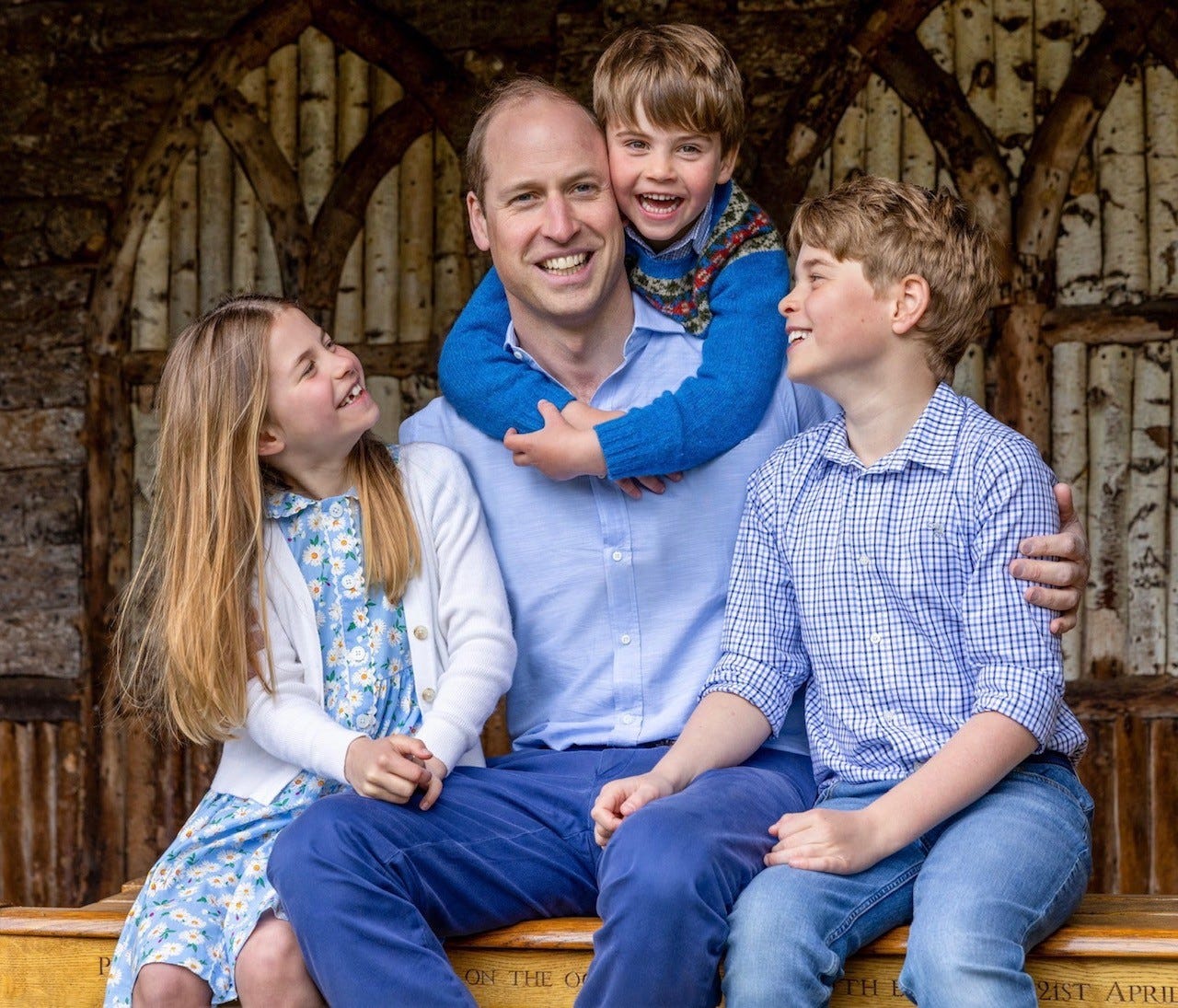

What a fantastic read!
Great write up on our Prince of Wales!